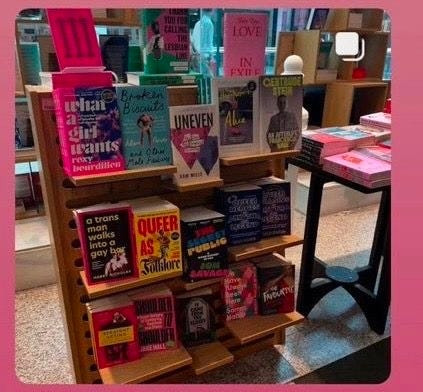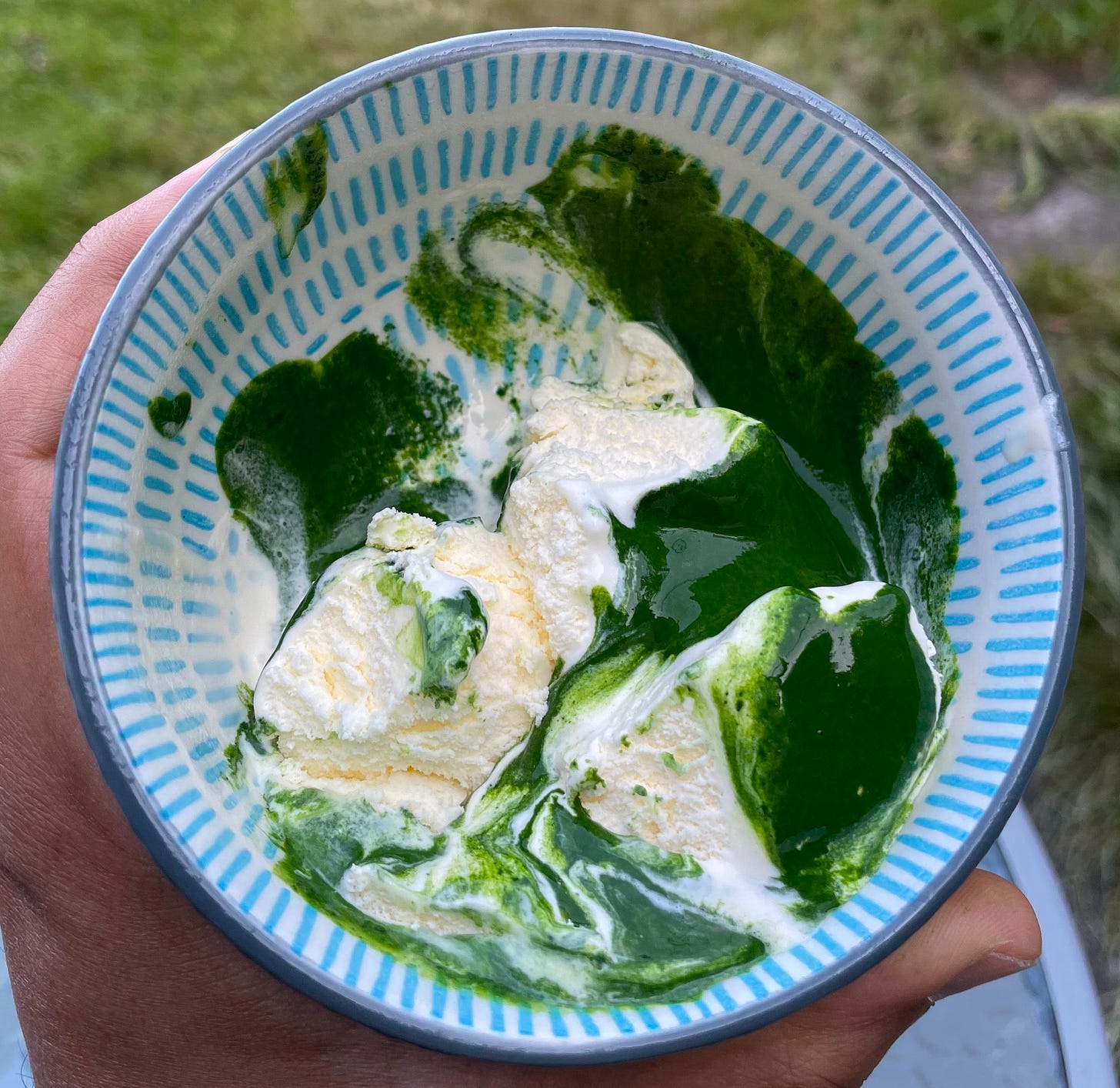A few weeks ago, my publishers posted a reading list for Pride month on Instagram. I was found it as I was scrolling and flicked through the books they had chosen. To my surprise, my book wasn’t there. I went through the images again in case I’d made a mistake. Why hadn’t they included Determination? What had made them overlook it?
I was disappointed and a little annoyed at not seeing Determination there, on a list my own publishers had curated, because I have this experience a lot. I never see my books on any Pride lists, anywhere. There are plenty of valid explanations for that and I can understand: lists are finite and cannot include everyone, my books are not marketed as queer and neither am I, we live in an abundant time for queer books and that is wonderful. But lists, by their very function, are designed to exclude, and those exclusions are rarely accidental. When it’s the same books appearing on those lists, time and time again, I want to ask, who is being excluded and why?
A part of me thinks that it’s not that deep. It’s just a reading list, and Pride takes up space in our lives for one month every year. But it is that deep, isn’t it, because curation is everything? The entire publishing industry is curated for us: by agents, editors, festival organisers and bookshops, deciding what has a market and what doesn’t, what is worthy of being read and what isn’t. This feels even sharper now on social media, where book bloggers have built huge platforms through their content curation: ‘here are five books to read if you’re interested in x’. Even if you personally aren’t paying attention to these lists, aren’t we just narrowing the sorts of books we find ourselves repeatedly exposed to? And aren’t reading lists playing a huge part in the rampant homogenisation of our literary culture? But maybe you know this already.
I have the same experience with queer bookshops. I rarely, if ever, find my books in them. Whenever I’m visiting one and I bring up the possibility of them stocking my work, the standard answer is that Determination doesn’t have a queer protagonist. Though it has queer characters, Determination isn’t queer enough. But how many books have you read that spotlight the experiences of queer refugees in Britain? Wouldn’t it be good for queer browsers to know a book like that is out there in case they wanted to read about those experiences?

Too many queer bookshops are interested in surface-level representation: a book has to have queer characters – preferably, a queer protagonist – to be worth stocking. If a queer author chooses to write about something else, the likelihood is that book won’t make it to their shelves at all. I find that a little bit depressing, to be honest, and so limiting. Are we really saying that The Argonauts, Maggie Nelson’s memoir of her relationship with her trans partner has something to say to queer readers, but her work on freedom or the colour blue does not? Or that we should ignore all Patricia Highsmith’s work aside from Carol/The Price of Salt?
I prefer my bookshops to be more generous, expansive, and yes, political, spaces. Where DIY zines and experimental presses jostle up against academic books and blockbusters. Where queer writers can write what they want and still reach a queer audience. I love the thrill of walking into a bookshop and discovering an author or title I had never heard of. And I love finding books about a subject I didn’t know I was interested in, but which totally speaks to the way I view the world.
In the end, I think some of it has to do with people wanting Pride reading lists that appeal to everybody, feel a little bit celebratory and are recognisably about LGBTI+ people. So, I’m writing this because I want the world to know that my books are queer, even if they’re not marketed as such.
They’re queer in terms of content: Muslim, Actually has a whole chapter deconstructing the idea that Muslims are homophobic and reimagining the space for LGBTI+ people in Islam. Determination tells the stories of two queer refugees struggling to validate their identities under the British asylum system. And they’re queer in terms of their orientation. What do I mean by that? My books are interested in questioning traditional social norms and structures. They’re about going against the mainstream. They’re about finding freedom.
Muslim, Actually came out of the work I did with young Muslims in my twenties. I wanted them to like they could approach the scripture and interpret it in a way that resonated with them. Similarly, Determination is an attempt to explore how people find joy and agency in their lives despite the systems – the Home Office, families, capitalism – that try to flatten us.
I’d love for us to broaden the category of books that make it to our reading lists and bookshelves. But to do that, perhaps we have to expand our ideas of who and what identifies as queer first.
In Other Business:
Recipe of the Week: Affogato. Things over ice-cream. Bitter and grassy homemade matcha poured over three scoops of Kelly’s Vanilla ice-cream. A spoonful of Pumpkin seed oil and a sprinkle of salt, to give it something of a Pistachio gelato vibe. Ripe, juicy peaches that collapse in your hands as you try pulling the seed from the flesh.
Song of the Week: Diet Pepsi by Addison Rae. It was going to be something else and I know I’m late to the party, but I had a moment to this a few days ago, walking through the woods in North Wales. It’s beautiful.
What I’m Reading: Dracula by Bram Stoker. Yes, friends, I’m starting a Gothic phase (having never had one when I was younger) and OMG it is brilliant. I think the cultural ubiquitousness of Dracula made his early appearances in the book feel a bit comical and camp, but the book get deliciously darker as it goes on, and it’s plotty and clever and fun.
Next time: Labour and asylum policy, and the myth of having voted better.



Super-interesting read, T